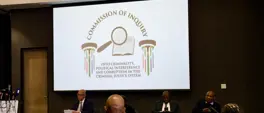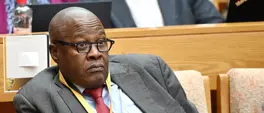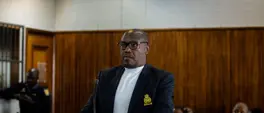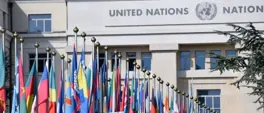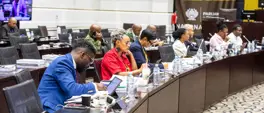Calls from opposition for Godongwana to quit out of kilter with coalition politics - Maswanganyi
Lindsay Dentlinger
11 June 2025 | 13:00Tabling the Standing Committee on Finance’s report on the latest fiscal framework on Wednesday afternoon, Maswanganyi said drawing up a budget that considers the competing interests of all partners in a coalition government is a complicated process.
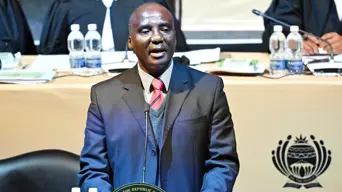
Chairperson of Parliament's Standing Committee on Finance, Joe Maswanganyi, presenting the committee's report on the Fiscal Framework in Parliament on 11 June 2025. Picture: Parliament/Phando Jikelo
CAPE TOWN - Chairperson of Parliament's Standing Committee on Finance, Joe Maswanganyi, says calls from the opposition for Finance Minister Enoch Godongwana to quit are out of kilter with coalition politics.
The National Assembly on Wednesday afternoon considered a Fiscal Framework and Revenue Proposals that will underpin the 2025 budget for a second time, after Godongwana was forced to withdraw the last version in April, following political pressure both within and out of the Government of National Unity (GNU), and a subsequent court challenge.
On Tuesday, the uMkhonto weSizwe (MK) Party lost a vote in the house calling for the Finance Minister to be censured over what it argued was the mismanagement of the budget process.
Tabling the committee’s report on the latest fiscal framework on Wednesday afternoon, Maswanganyi said drawing up a budget that considers the competing interests of all partners in a coalition government is a complicated process.
"The budget adoption process within a coalition government can be quite complex due to the multitude of interests involved. Coalition partners often bring diverse priorities, ideologies and agendas to the table, which can complicate consensus-building efforts. Many countries, such as those in the Benelux region, the Nordic nations and Germany, encounter similar challenges under coalition governance."
In response to public objections to the adjustment in the fuel levy to fund the R2.3 trillion budget, Maswanganyi said the committee will put pressure on finalising a review of the country’s fuel price structure.
The committee noted the stakeholders' rejection of this proposal, mostly citing its impact on the business sector, poor people and low- and middle-income households who spend the bulk of their earnings on food and transportation.
ALSO READ: EFF hellbent on having fuel levy hike scrapped, despite losing legal bid
Get the whole picture 💡
Take a look at the topic timeline for all related articles.
